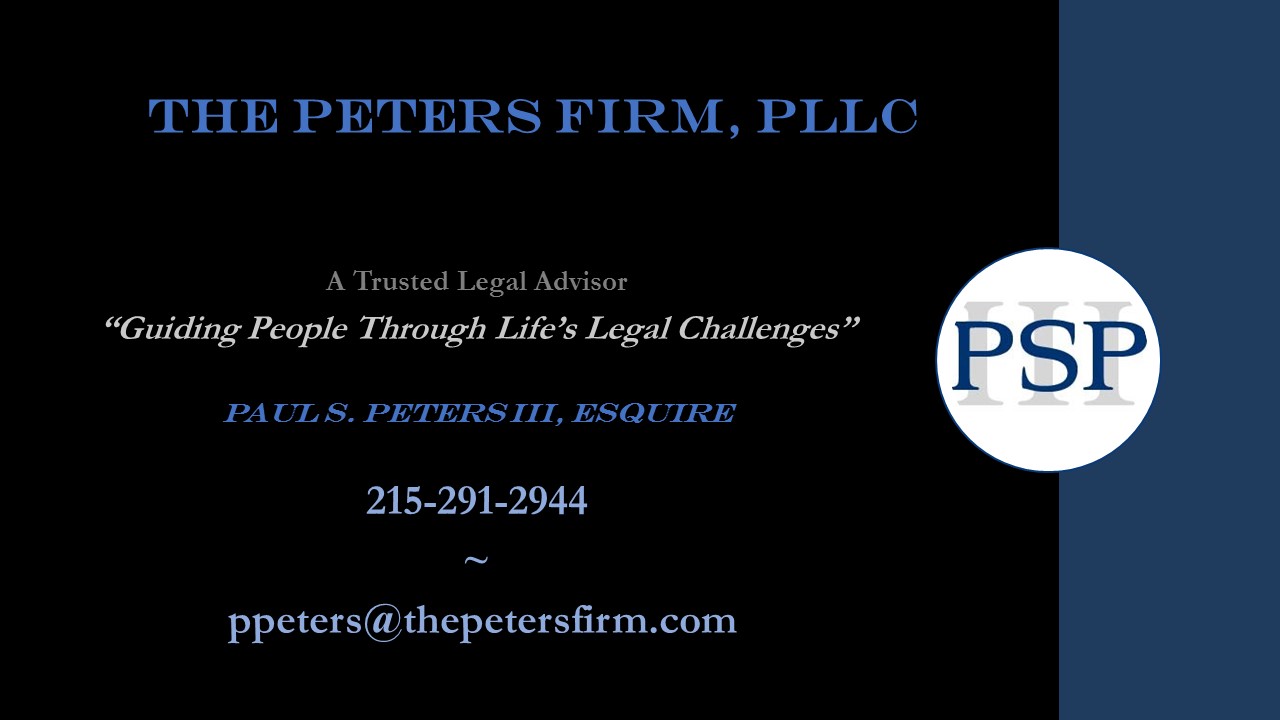
How do courts handle the custody of pets in PA?
May you sue in court for Custody of Pets in PA?
Custody of Pets in PA can be an emotional and contentious situation in an ending marriage or relationship. Pets are members of the family; therefore, the issue of Custody of Pets in PA comes up more than one would believe.
I recently had a call from a client that ended a relationship with her boyfriend, and now faces a dispute with him over who retains custody of the dog they adopted together. I thought this situation made for an interesting blog post.
First Some Numbers. In November 2018, the American Veterinary Medical Association released its latest stats on pet ownership in the United States:
- 57% of US Households own at least one pet;
- 38% own one or more dogs;
- 25% own one or more cats;
- 13% own “exotic” pets (fish, ferrets, rabbits, rodents, reptiles, birds, livestock, and amphibians); and
- Poultry has experienced a large rise in ownership seeing a 23% rise in the last 5 years.
It is estimated that 72.13 billion dollars was spent on pets in 2018; pets are a big business.
Pets are integral members of many families and are loved just as much (and sometimes more I’m sure), than the human members of one’s family. Therefore, an obviously emotional situation presents itself regarding custody of pets and care of a pet in the event of a breakup or divorce; or providing for a pet in the event of one’s death, incapacity, serious illness, or deployment.
So, how do courts treat custody of pets in PA and view pets under the law? The most direct and simple answer is that Pennsylvania law, and the law of most other states, view our beloved pets as personal property; the equivalent of a couch, car, or piece of jewelry. The courts are not concerned with the emotional attachment people have with their pets.
Pets and Divorce or Breakups
Courts will hear arguments over ownership or title to a pet just as they would in a dispute over a car or piece of artwork. However, courts will not entertain or enforce actions pertaining to custody of pets or visitation disputes over a pet. In a dispute over ownership of a pet, courts will hear evidence pertaining to: (1) the purchase or adoption a pet; (2) whose funds were used to care for the pet; (3) veterinary records and bills; (4) breeder records; and (5) daily expenses of ownership. Courts will not consider evidence or testimony as to who was the pet’s primary caregiver.
To illustrate this point, in the case of Desanctis vs. Pritchard, 803 A.2d 230 (Pa. Super 2002), the Pennsylvania Superior Court heard a case regarding the dismissal of a lawsuit attempting to enforce a custody agreement over Barney the dog. The parties entered into a custody agreement giving Ms. Pritchard full custody of Barney and visitation rights to Mr. Desanctis. After the agreement, Ms. Pritchard moved a distance away from Mr. Desanctis and ceased allowing him visitation of Barney. Mr. Desanctis then filed a lawsuit against Ms. Pritchard attempting to enforce the custody agreement. The Court stated it appeared the parties were attempting to treat Barney, a dog, as a child. The court concluded, “Despite the status owners bestow on their pets, Pennsylvania law considers dogs to be personal property.” To further make its point, the court argued that the parties were “seeking an arrangement analogous, in law, to a visitation schedule for a table or lamp.”
In a divorce, when parties cannot agree as to the distribution of marital property, an action for “equitable distribution” is initiated. The judge handling the case will apply specific laws, rules, and precedents in determining how to distribute marital property such as real estate, cars, retirement accounts, bank accounts, investments, antiques, jewelry, etc. Those same rules will be applied by the court if the parties cannot agree on the distribution of the couple’s pet(s); the court will handle the custody of pet argument the same as if the parties were at a stalemate over who gets the shore house. These disputes over animals may become extremely heated and contested if, beyond the emotional attachment, a family pet is also a money generating asset (i.e. a racehorse).
To protect oneself in terms of ensuring you maintain custody of a pet, you may: (1) make sure that all paperwork regarding the adoption or purchase of a pet lists you as the purchaser and owner; (2) draft a property agreement regarding the pet that makes clear who owns the pet (a court will enforce ownership of property agreement, but not a custody or visitation agreement regarding the pet); or (3) a pre or postnuptial agreement that clearly spells out who maintains ownership of the family pet in the event of a divorce.
Pets and Estate Planning
In considering estate planning and pets, it is important to understand that pets love us unconditionally, wait for us to come home each day, and rely on us for all their needs. Therefore, what happens in the event you do not come home one day due to an accident or illness, or never come home due to death. To avoid the pet going to a shelter and being adopted to an unknown person or worse, euthanized, the law does permit people to arrange for the care and safety of their pets.
First, A pet cannot inherit someone’s money or other assets. However, one can gift a pet in a will to a specific person/guardian and provide funds in a trust or to the individual to fund the pet’s future care.
Another option is that a pet owner may create a Pet Trust. A Pet Trust allows one to distribute funds into the trust for the pet’s lifetime. The Pet Trust will allow an owner to specify how the pet shall be cared for, and specific amounts to be spent on food, grooming, and veterinary care in the event the owner becomes incapacitated or unable to care for the pet.
Lastly, since a pet is considered a personal asset, one can designate an agent to care for that asset through a Power of Attorney if the owner becomes incapacitated or otherwise unable to care for the pet. However, a Power of Attorney does not apply in the event of the owner’s death. In the event of death, the status of the pet’s ownership will be determined by a will or trust.
Given the status of pet’s in our lives, it may be worth giving some time to think about what will happen in the event you can no longer care for your pet(s) due to incapacity, illness, or death. One of my family cats, Joe, an orange and white, smooshy face Persian show cat, joined our crew under this type of circumstance. A woman with 7 cats suddenly and unexpectedly passed away leaving her family and friends scrambling to find good and safe homes for her beloved cat.
If you happen to have questions or needs regarding legal issues pertaining to custody of pets in PA or any other legal challenges life may throw at you, please contact THE PETERS FIRM, PLLC at:
215-291-2944 or ppeters@thepetersfirm.com
Thank you for visiting and reading this page.



